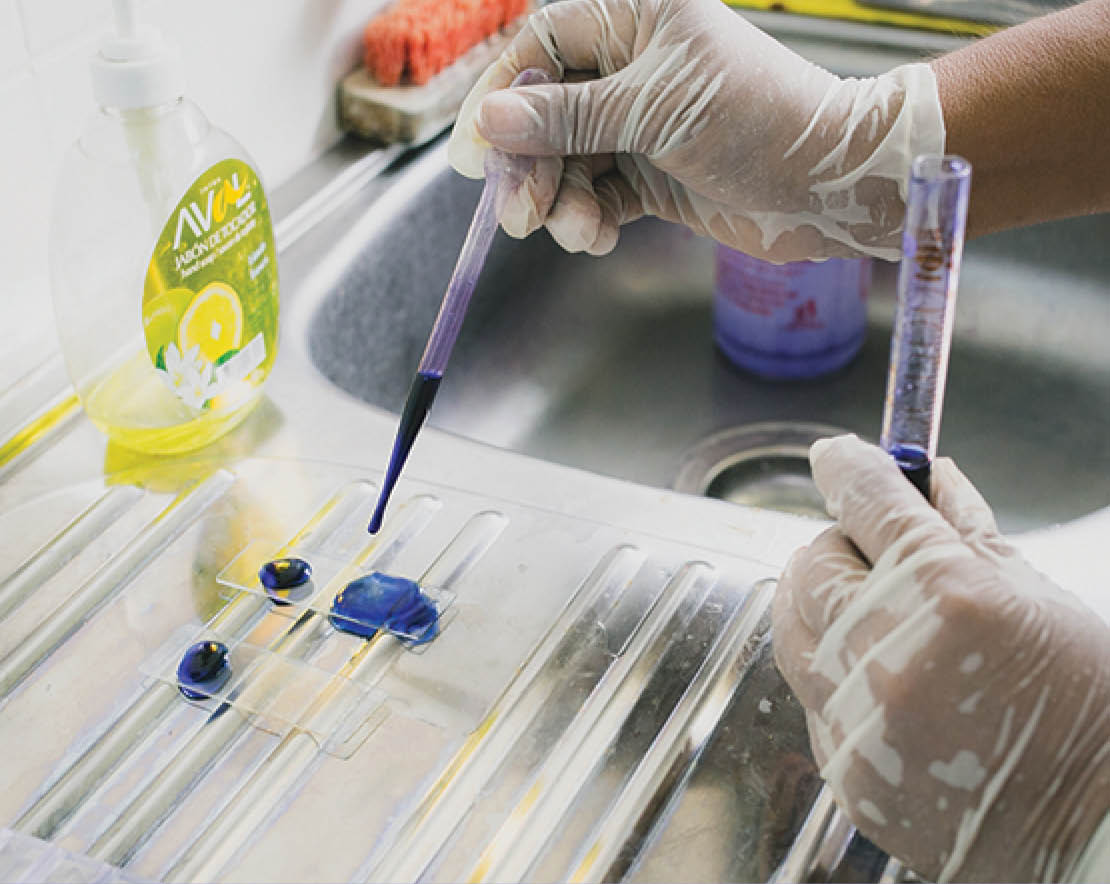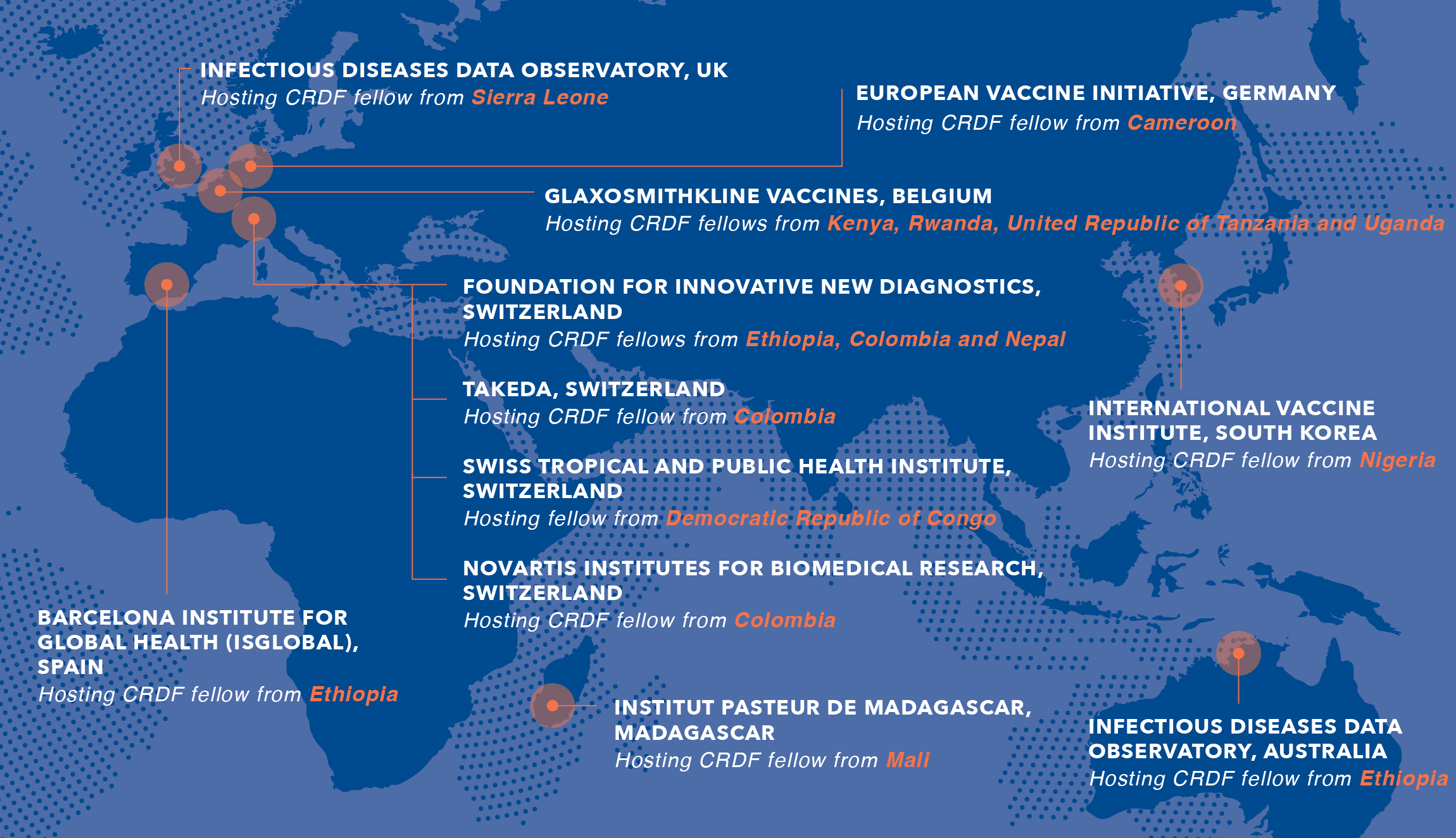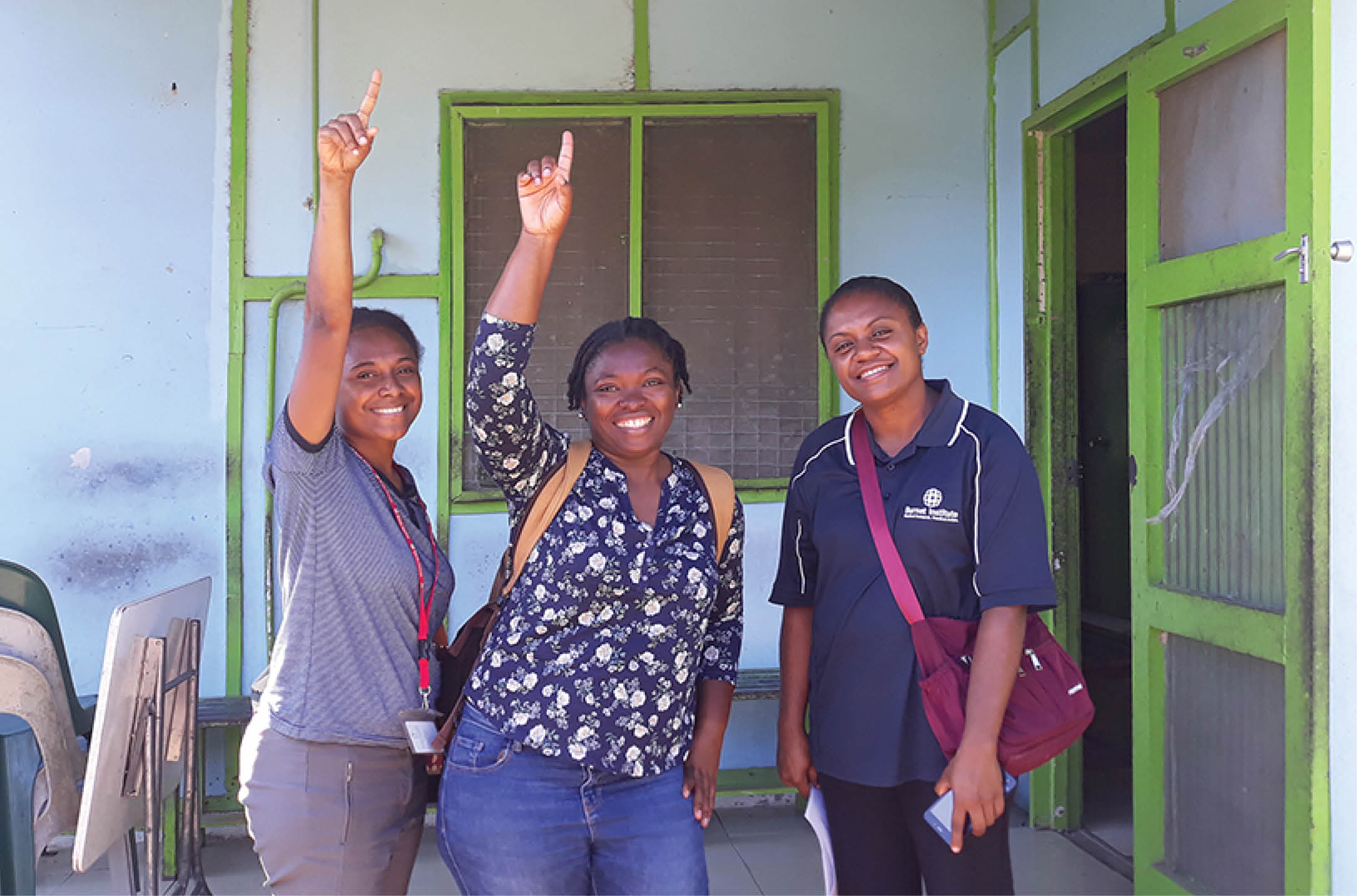



Strengthening
research capacity


Clinical Research and Development Fellowship (CRDF) Building capacity to conduct clinical trials in low- and
middle-income countries
Complementing our training programmes on research for implementation, TDR also supports the Clinical Research
and Development Fellowship scheme, which allows early- to mid-career researchers in low- and middle-income countries
to learn how to conduct clinical trials. Participants are placed
for 12 months in pharmaceutical companies, product development partnerships, or research organizations and receive a grant to reintegrate with their home institution. The fellowship is jointly implemented by TDR and the European & Developing Countries Clinical Trials Partnership (EDCTP).
Since 1999, a cumulative total of 107 fellows (28 women,
79 men) from 36 low- and middle-income countries have been selected to be placed with 27 partner organizations. All fellows have returned to their home institutions except one who has played a pivotal role in a wide range of R&D projects, including trials for new candidate vaccines and drugs.
In 2019, 16 fellows were selected to be placed with training partner organizations as illustrated below.

Training partner organizations hosting CRDF fellows selected in 2019


TDR fellows participating in postgraduate training scheme, in Dkaha, Bangladesh





Dr Ewurama D. A. Owusu
Bringing her CRDF experience in Papua New Guinea home to Ghana
Dr Owusu, center, at the malaria diagnostic clinical trial site in Papua New Guinea



















Clinical trial of malaria rapid
diagnostic test
As a recipient of the TDR Clinical Research and Development Fellowship I worked with the Malaria Team at FIND, under the close supervision of Dr Xavier Ding. He entrusted me with a project where I managed the implementation of a clinical trial of a highly sensitive malaria rapid diagnostic test (HS-RDT) in pregnant women in Papua New Guinea. I saw the project through proposal completion, ethics approval, shipment of materials and equipment to study site, commencement of project, monitoring of project (both remotely and on-site) and close-out of study. I was also part of the team that developed the first electronic case report form (eCRF) which was used for this project.
Sharing knowledge and experience
I organized and also facilitated a series of seminars and workshops at the Disease Surveillance Department of the Ghana Health Service and the University of Ghana respectively. These seminars and workshops focused on knowledge sharing on the conduct of diagnostic clinical trials; clinical studies monitoring; and using the Global Health Network (TGHN) website and its Professional Development Scheme (PDS) in capacity development. I have made it a habit to share tips and tricks with undergraduate and postgraduate students I supervise
at my university as well.
I have now resumed my position at the University of Ghana and am leading a multi-disciplinary research team on climate change and its effect on infectious diseases, nutrition and biodiversity.
As a family woman, leaving my husband and children behind for one year was the most difficult thing for me and for them. Of course, I got the chance to return home for a visit once, and they also came over to visit during the summer, which made it easier for us. Nonetheless, the knowledge and experience I have gained from this fellowship makes all of this well worth it. I have encouraged colleagues to apply for this fellowship and will continue to do so.

In the past 10 months of my being back home in Ghana, my focus has been on sharing all the knowledge and experience I gained during my fellowship with my research colleagues and graduate and undergraduate students.”






